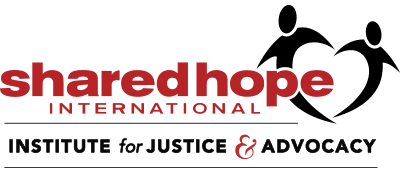Frequently Asked Report Card Questions
In 2020, we announced the release of our advanced legislative framework—the next step in state report cards! With the advanced framework, we shifted focus from criminal provisions to survivor-centered protections. All grades under the Protected Innocence Challenge remain the same as a separate project and can be viewed here. Learn more about our advanced legislative framework here.
After 9 years of grades under the Protected Innocence Challenge framework, we saw incredible growth across the nation! When we began that project, the average grade was an F, but, by 2019 the majority of states had achieved an A or B grade and no states were failing. During this timeframe, many states passed legislation focused on improving gaps in their criminal laws. However, a critical gap remained in states’ progress on enacting laws that improved victim protections. Our advanced legislative framework shifts its perspective to highlight survivor-centered reforms that ensure victims are supported, vulnerable children and youth are protected, and prevention is prioritized. We are optimistic that states will raise their grades just as they did with our first grading project, the Protected Innocence Challenge!
From 2021 to 2023, State Reports were released on an annual basis each fall. Going forward, State Reports will be released biennially with the next set of reports and state grades set to release in the fall of 2025. Reports will continue to analyze state laws in six issue areas: criminal provisions, identification of and response to victims, continuum of care, access to justice for trafficking survivors, tools for a victim-centered criminal justice response, and prevention and training.
Shared Hope’s Policy Team convenes several months before the release of the Report Cards to review and analyze enacted state legislation against the advanced legislative framework. This process allows the team to apply the same standards to every enacted bill to determine if it: relates to one or more of the 40 Policy Goals addressed under the advanced legislative framework and, if so, whether it fully or partially meets the policy goal(s). Each policy goal is worth up to 2.5 points and is scored according to a written point allocation scheme. For many policy goals, states can still receive partial credit for taking legislative steps toward accomplishing the goal even if the goal has not been fully met.
The Report Cards do not analyze or grade non-statutory responses, such as regulation or agency policy or implementation. While we recognize the importance of implementation and enforcement, grading on statutory law provides a clear mechanism for evaluating policy goals across all states while ensuring that survivor-centered reforms are an enduring part of states’ service responses and represent a long-term commitment to addressing the needs of child and youth sex trafficking survivors. We are currently examining opportunities to collect, uplift, and share such practices, understanding that the most sustainable progress occurs when all stakeholders—survivors, communities, agencies, and legislators—are working in tandem to protect and support children and youth who have experienced exploitation.
Yes! States can receive up to 10 points of extra credit for policies that expand protections to child labor trafficking survivors and to youth 18+. This issue brief provides more information about how states can earn extra credit.
In developing the advanced legislative framework in 2020, we convened over 200 field experts, including lived experience experts, to inform and guide the development of the framework. Additionally, before the Report Cards are released each year, we invite state Attorneys General, Governors, and statewide human trafficking coordinators to review and provide feedback on their state’s Analysis Report. We review all of the feedback we receive and, where appropriate as it relates to the advanced legislative framework, we incorporate the feedback into the state’s Analysis Report.
Yes. In order to have time to accurately assess the impact of enacted legislation and allow time to seek vettor feedback on each state’s Analysis Report, we do not look at legislation that was enacted after July 1st. Any legislation enacted after July 1st that impacts the advanced legislative framework will be incorporated into reports and graded on during the next Report Cards cycle.
Our hope is that you will use your State Report as a tool that will assist you in developing and advocating for better laws to support survivors! This Anatomy of an Analysis Report document provides detailed information on how to read your state’s Report. States without full credit for a policy goal will also have a recommendation, which is meant to provide feedback on how state laws can be enacted or improved. Additionally, there are also issue briefs for each policy goal that include drafting considerations that you can share with your representatives.
If a new law is passed that relates to a policy goal, points will be awarded to that state. We utilize 40 policy goals to grade states on six issue areas.
Yes! Legislators and advocates can request a consultation with our Policy Team here.
